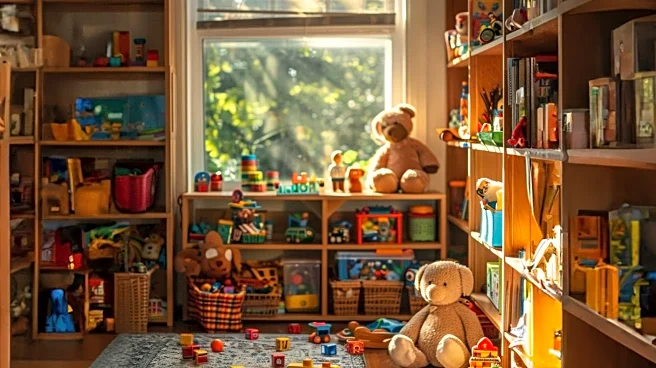What's Happening?
The Toy Loan Library in Lincoln Heights, operated by the L.A. County Department of Public Social Services, has been providing free toys to children for 90 years. The program was initiated in 1935 to address juvenile shoplifting by offering toys on loan, which children can return for another toy. This initiative aims to prevent children from getting into trouble by providing them with access to toys. The program has faced challenges, including a pandemic and a fire that destroyed its inventory, but has recovered with a current stock of 94,732 toys. The library partners with toy companies like Mattel and other organizations to keep its shelves stocked with relevant toys that excite children.
Why It's Important?
The Toy Loan Program plays a crucial role in community engagement and child development by providing access to toys, which can be essential for learning and creativity. It helps prevent juvenile delinquency by offering a constructive outlet for children. The program's resilience in overcoming setbacks like the pandemic and warehouse fire demonstrates its importance in maintaining community support and involvement. By partnering with toy companies and donors, the program ensures that children have access to modern and engaging toys, fostering a positive environment for growth and development.
What's Next?
The Toy Loan Library continues to seek partnerships and donations to expand its inventory and reach more children. The program's success may inspire similar initiatives in other communities, emphasizing the importance of providing resources for child development. As the library adapts to changing toy trends, it will focus on maintaining a diverse selection that appeals to children, ensuring ongoing engagement and support from the community.
Beyond the Headlines
The Toy Loan Program highlights the broader societal issue of juvenile delinquency and the importance of addressing root causes through community support. It underscores the value of public social services in creating positive change and the potential for similar programs to address other social challenges. The program's longevity and adaptability serve as a model for sustainable community initiatives.










